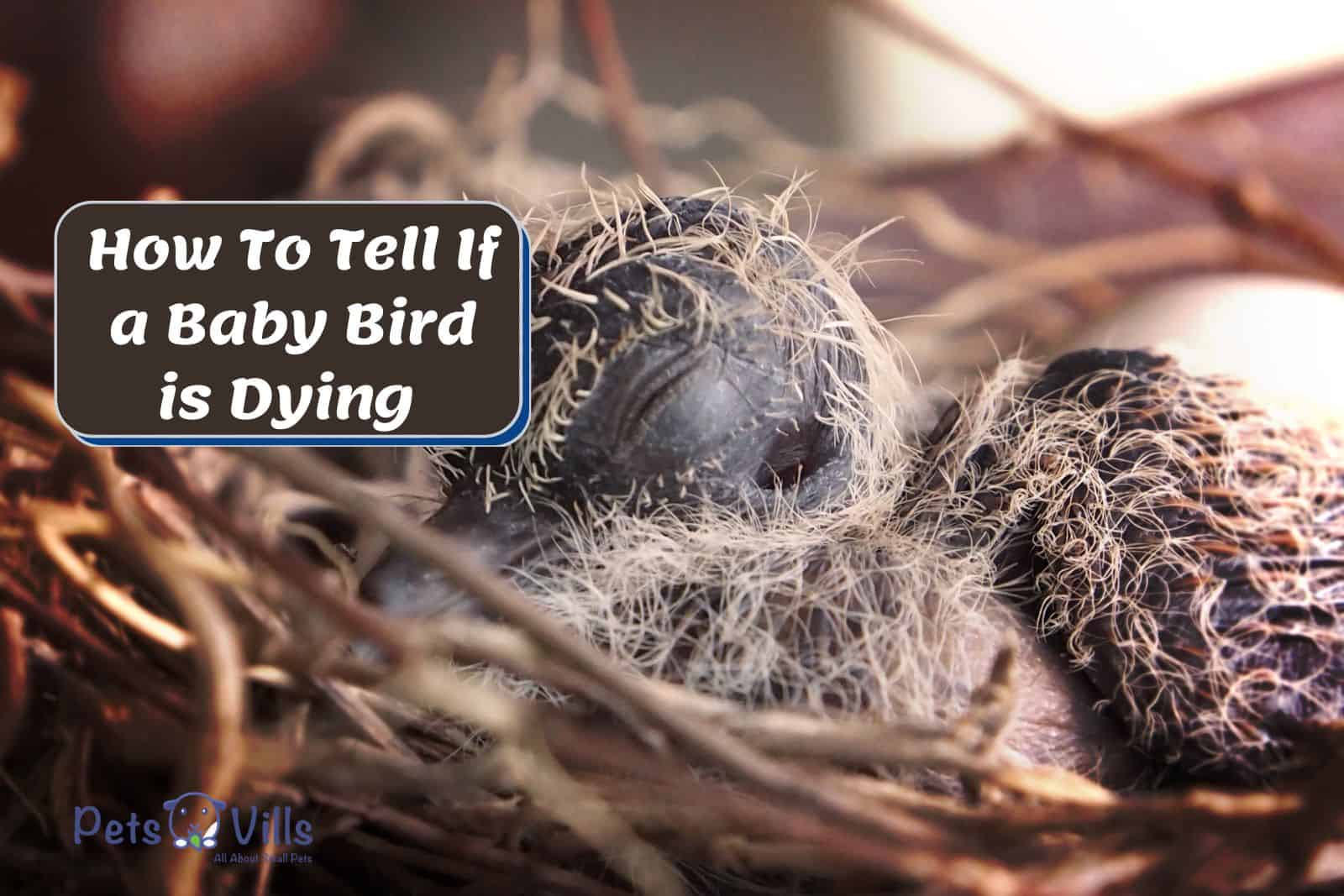Wondering how to tell if a baby bird is dying? One of the most hurtful things to a bird lover is finding a sick or injured baby bird.
While it is natural to want to help, it is important to be aware that many baby birds die each year [1], even with the best of care.
This easy guide will help you make the tough decision on what to do next, and hopefully, give the little guy a fighting chance.
Although we hope you never have to use this information, knowing it could make the difference between life and death for a little one.
READ MORE: Do Birds Carry Their Babies While Flying?
Table of Contents
8 Clear Indications of a Dying Bird
Although it is difficult to tell when a baby bird is dying, some tell-tale signs indicate that the end is near. Many of these signs are easily observable. These include:
1. Lack of energy
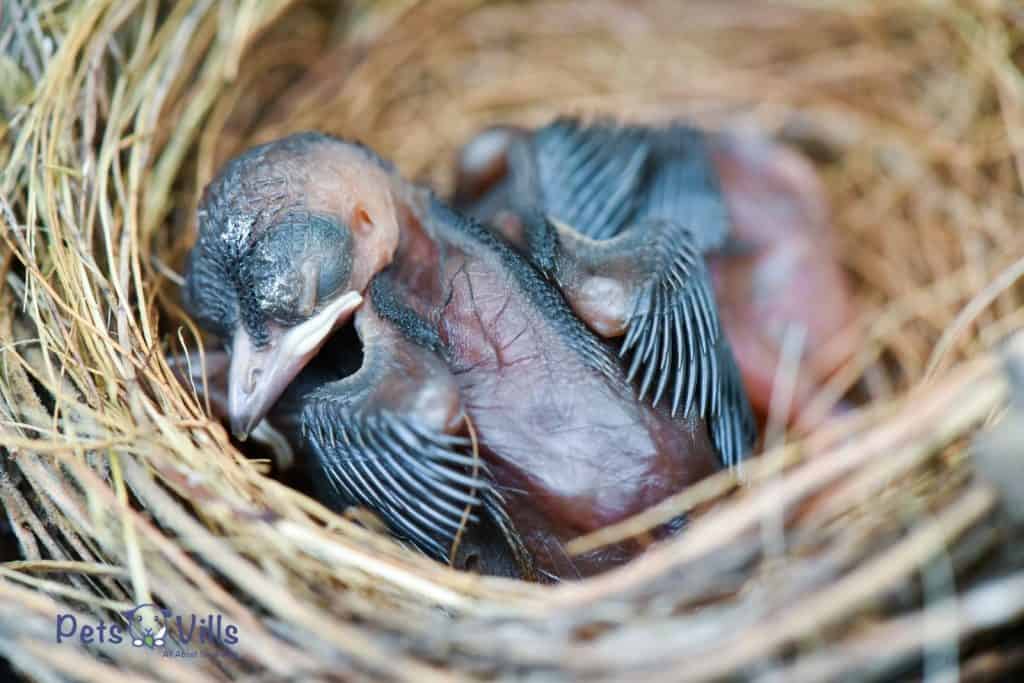
Healthy baby birds are usually very active, vocal and full of energy. A sick or dying bird will usually have little to no energy.
It may sit in one spot for long periods and not move much. On the contrary, a healthy bird will be quite active.[2]
2. Loss of appetite
A dying baby bird may stop eating altogether or eat less than normal. Loss of appetite could be caused by several different things, such as illness, injury, or stress.
It may cause dehydration and weight loss. They are not eating, and their bodies break down their muscle and tissue to survive.
3. Change in appearance
A sickly-looking bird will often have ruffled feathers and look disheveled. The bird may also have a dull appearance. On the contrary, a healthy baby bird will have bright, shining eyes.
4. Change in behavior
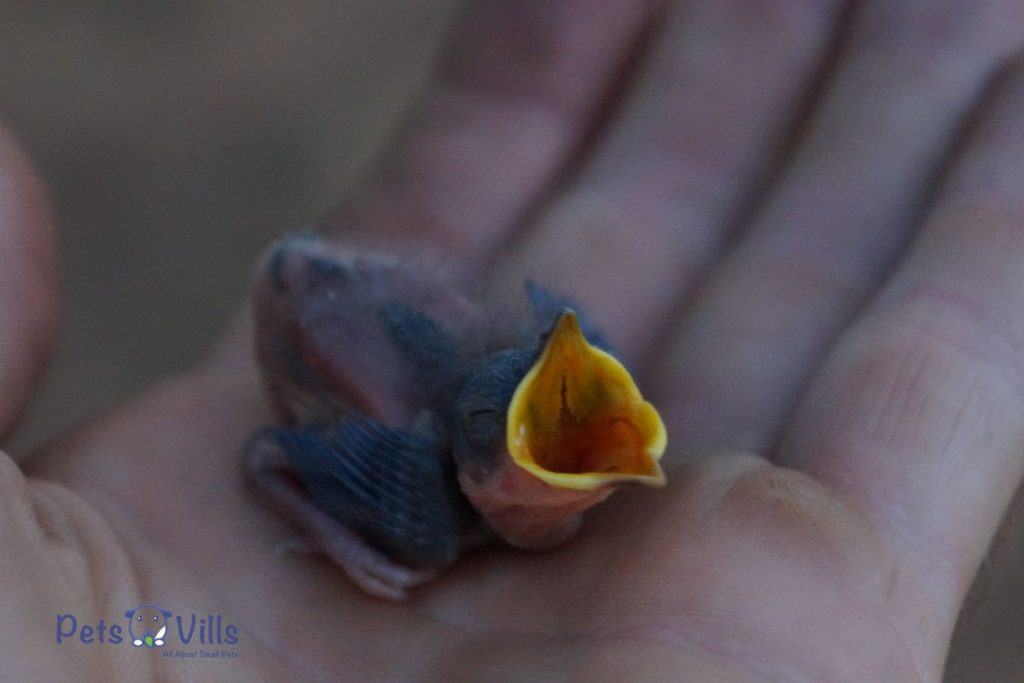
A dying bird will often exhibit changes in behavior. It may be quieter and more still than usual, or it may become aggressive.
It poses a challenge to lovers of birds since if one is not a keen observer, he may never notice these subtle changes.
5. Difficulty breathing
Difficulty in breathing may be due to a respiratory infection. If you see a bird panting or gasping for breath, it is in trouble and needs help immediately.
Gaseous exchange is essential for all living organisms, birds included. Breathing problems can lead to suffocation and, finally, death.
A healthy bird’s feathers are sleek and smooth, but a sick bird will be fluffed up. It is the bird’s way of trying to keep warm and conserve energy since they cannot generate enough body heat on their own.
READ MORE: Why Do Mother Birds Throw Their Babies Out of the Nest?
6. Changes in vocalizations
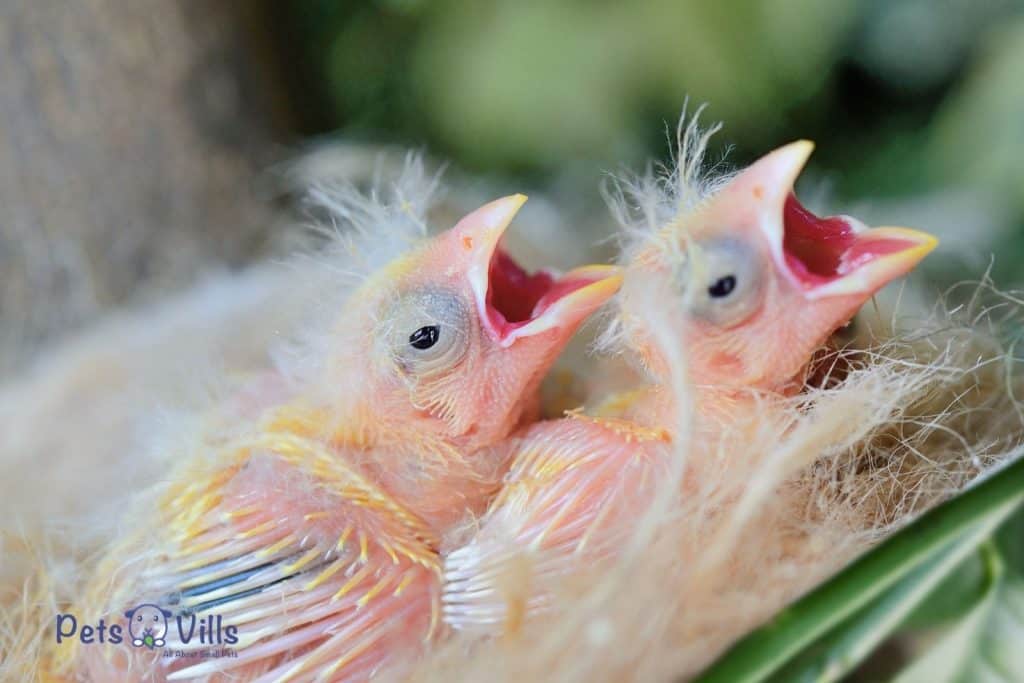
A sick or dying bird will often change how it vocalizes. It may be quieter than usual or make strange noises that it normally doesn’t make.
Many baby birds will make a weak, high-pitched chirping sound when they die.
7. Lethargy
A lethargic bird that is not moving around much is most likely dying. Birds don’t have the energy to move and expend what little they have to stay alive.
8. Changes in droppings
A sick bird will often have a change in its stool. The stool may be watery, bloody, or contain mucus. It is usually a sign of an infection or something wrong with the bird’s digestive system.

If you believe a baby bird is dying, it is best to euthanize the animal humanely.
There are several ways to euthanize a baby bird, but the most common way is by using an over-the-counter pain reliever like Tylenol or ibuprofen. [3]
When administering medication to the baby bird, be sure to crush the pill and add water until it forms a slurry before feeding it to the bird.
If you do not want to euthanize the baby bird, you can try to rehabilitate it yourself or take it to a rehabilitation center.
Make sure to read our guide on how to save a baby bird from dying.
FAQs
Do baby birds die easily?

Yes, baby birds die easily. Some baby birds are not born perfectly healthy, leaving them at high risk of death. Baby birds naturally have low immunity, so they are more likely to die once they get sick.
How long can a baby bird go without eating?
Baby birds can usually stay without food for a maximum of 24 hours. However, keeping young birds hungry for a long time makes them sick, which increases the risk of death of young birds. So continuously feed young birds after every 2 or 3 hours to keep them healthy.
Do baby birds drink water?
There is no way for baby birds drink water directly. So the food that their parents give them meets their water needs with the amount of water in the food.
Conclusion
Although it is difficult to see a baby bird die, especially if you have formed a bond with the little one, it is best to remember that death is a natural process.
Knowing when and how to euthanize a baby bird properly can provide the bird with a peaceful passing and avoid causing more pain. If you find yourself in this situation, I hope our guide has been of some help.
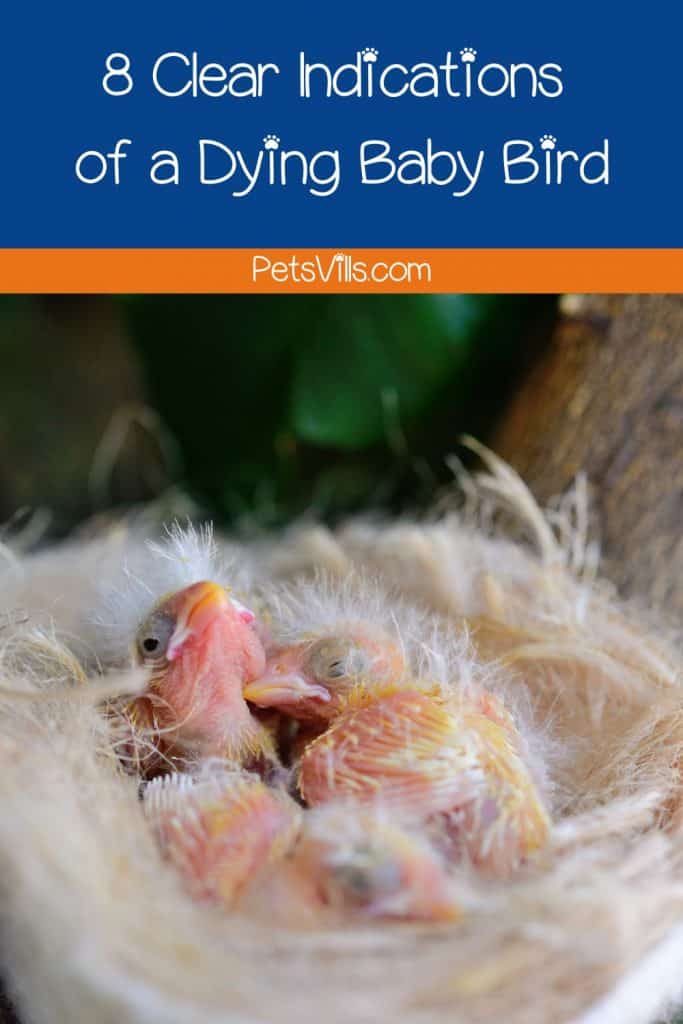
Resources
- 1. Available from: https://repository.si.edu/bitstream/handle/10088/5389/SCtZ-0009-Hi_res.pdf?sequence=1&isAllowed=y
- 2. Characteristics of a healthy bird | Animal & Food Sciences [Internet]. afs.ca.uky.edu. Available from: https://afs.ca.uky.edu/poultry/characteristics-healthy-bird
- 3. STANDARD OPERATING PROCEDURE #304 AVIAN EUTHANASIA [Internet]. Available from: https://www.mcgill.ca/research/files/research/304-avian_euthanasia_0.pdf
Barry Stingmore is a British content writer living in Fuerteventura, Spain. An animal lover at heart, he shares his home with a dog and four rescue cats and has a passion for writing about animals big and small.
Barry loves finding answers to your animal-related questions, the more research involved the better! You can rely on him to find the facts.
Find him on FACEBOOK, TWITTER AND Linkedin
Read his latest ARTICLES.
Find more about him HERE.

